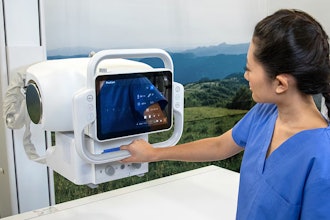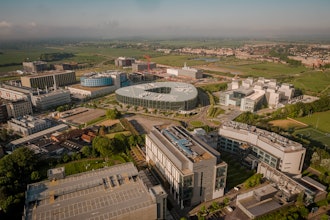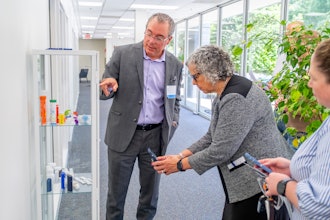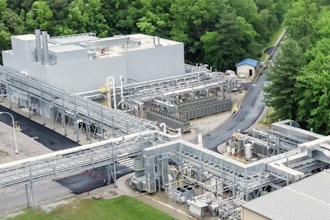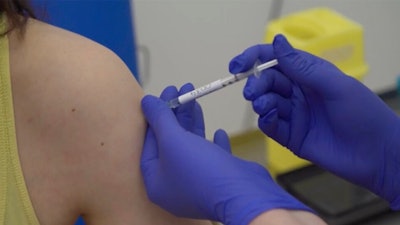
LONDON (AP) — University of Oxford scientists expect to report results from the late-stage trials of their COVID-19 vaccine by Christmas, a key researcher said Thursday as he discussed the team’s latest findings.
Dr. Andrew Pollard, an expert in pediatric infection and immunity at Oxford, said research was slowed by low infection rates over the summer, but the Phase III trials are now accumulating the data needed to report results as a renewed surge of the pandemic hits countries around the world. Oxford is developing its vaccine in conjunction with the drugmaker AstraZeneca.
“I think we’re getting close, and it’s definitely going to be before Christmas based on the progress,” Pollard said in an interview with the BBC.
Pollard discussed progress in the late-stage trials as Oxford released a study based on earlier research that found the vaccine was well tolerated and produced a strong immune response in people over 70. This is important because vaccines often don’t work as well in older people, Pollard said.
“The reason that we’re so delighted is the we’re seeing the immune responses look exactly the same, even in those who are over 70 years of age,” Pollard said.
The findings were based on a so-called phase II trial of 560 people, including 240 over the age of 70. The results of the peer-reviewed study were published Thursday in the Lancet, an international medical journal.
Phase II vaccine trials provide important preliminary data but don’t prove whether they ultimately prevent people from getting sick. Oxford and AstraZeneca are waiting for the results of phase III trials on thousands of people around the world to show whether their vaccine is safe and effective.
Two other drugmakers, Pfizer and Moderna, this week reported preliminary results from late-stage trials showing that their COVID-19 vaccines were almost 95% effective.
Pollard said there is no competition between the various research teams, because several vaccines will be needed to bring the global pandemic under control and allow life to return to normal.
Despite recent progress, Pollard said the world is still in the early stages of the effort to protect people against COVID-19. Even after vaccines are approved by regulators, drugmakers and public health officials still face the task of producing billions of doses and administering them to people around the world, he said.
Pollard, an amateur mountaineer, compared the task to the work involved in climbing a mountain.
“I think we’re still at the bottom of that mountain in some ways,” he said. “We’ve done the route into the bottom of the mountain, the long trek to get to the start. Now we’ve got to get the data about the vaccines in front of regulators for them to scrutinize it and approve the first vaccines. And then we’ve got that huge effort to climb up to the top where we’ve got a vast majority of those who are at risk vaccinated.”


















